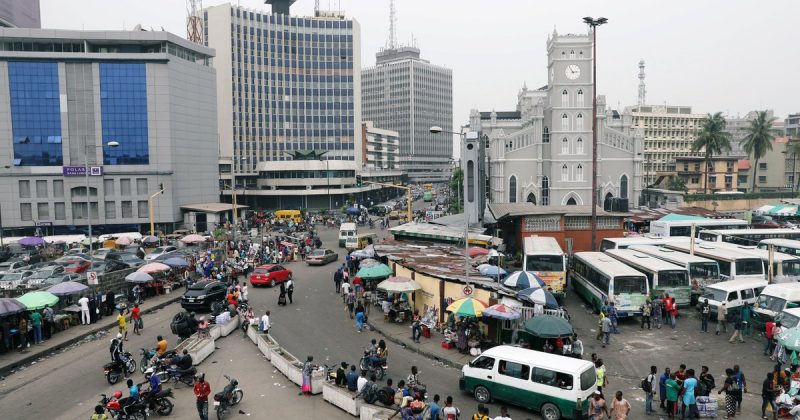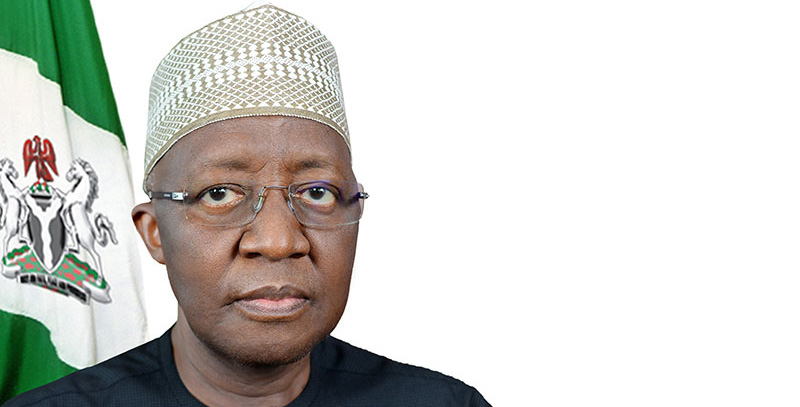Business
LCCI predicts galloping inflation, slow economy in 2021

The Lagos Chamber of Commerce and Industry (LCCI) has warned that 2021 economic outlook may not be bright as cost of living may rise due to higher inflation rate.
It specifically states that headline inflation will remain elevated as the combination of food supply shocks, forex policies, higher energy costs, forex illiquidity, heightened insecurity in major food-producing states will continue to mount pressure on domestic consumer prices.
In its Economic and Business Review for Year 2020 And Outlook for Year 2021 released on Sunday, the LCCI said it remained unclear what new strategies were in the works for the nation’s security situation.
The report released by the LCCI’s Director General, Dr. Muda Yusuf, noted that shortageof foreign exchange to businesses and end-users would remain a major economic issue in 2021.
According to the report, while forex supply will face continued pressure in 2021 in the light of relatively lower dollar inflows from oil, foreign investment, and diaspora remittances, the Central Bank of Nigeria (CBN) is expected to sustain its demand management strategies via rationing and restricting access to forex for food imports.
“In year 2021, the CBN will most likely maintain and initiate more demand management policy measures to taper growing demand for forex amid weak dollar inflows,” it said.
The LCCI said without bold policy pronouncements, constraints to the ease of doing business including foreign exchange shortage, escalating production costs, high regulatory costs, infrastructure inadequacies, and delayed cargo clearance, will persist into year 2021.
The report said the Nigerian policy environment is characterized by a great deal of uncertainty. The inconsistent and unpredictable nature of the policy and regulatory environment continues to hurt long-term investment planning and business projections.
Yusuf said, “These constraints will be more profound on businesses in the real economy. We believe the sluggish pace of recovery will continue to subdue consumer demand, albeit the impact on earnings performance will be disproportionate across sectors.”
He also said many Micro Small and Medium Enterprises (MSMEs) would struggle in the new year amid unfavourable economic conditions, large corporates are expected to demonstrate resilience in the coming year.
According to him, the economy will return to the path of positive growth in the second quarter of 2021 and this will expectedly impact on the macroeconomic environment which may ease some of the critical economic conditions currently impeding economic growth.
He said Nigeria’s trade dynamics with the global community is expected to remain almost unchanged in the short-term. With imports continuing to outpace exports, trade deficit is expected to widen in excess of N5 trillion in year 2020, thereby putting pressure on forex.
“Looking ahead in 2021, we expect crude oil to sustain its dominance in Nigeria’s export while manufactured imports will most likely dominate the country’s import bill. We anticipate sustained trade deficit in agriculture, manufactured goods and raw materials goods in year 2021,” he said.
The LCCI boss said total capital inflows for year 2021 might likely range between $10 billion – $11 billion, below 2018 and 2019’s levels. The forex policies, security challenges, sustained fiscal & external risks, infrastructure inadequacies, policy credibility concerns and regulatory bottlenecks may keep capital importation subdued in the short-term.
“Foreign Portfolio Investors (FPIs) are concerned about continual rise in negative real return rate on investment due to rising inflation and inability of FPIs to exchange naira repayments into forex. Given that these issues remain unresolved, we believe FPIs will remain cautious about naira-denominated investment securities in the short term,” Yusuf said.
He added that the value of Nigeria’s trade with the global community stood at N23.2 trillion between January and September 2020, with imports of N13.91 trillion and exports of N9.3 trillion accounting for 60 per cent and 40 per cent of total trade, respectively.
“There has been a sustained expansion in the country’s trade deficit since the start of the year, with cumulative trade deficit at N4.6 trillion in the first nine months of 2020 as exports have grown less rapidly compared to imports. The structure of Nigeria’s export basket remained unchanged as crude exports accounted for 74 per cent of total exports while manufactured goods dominated imports bills between the first and third quarters,” Yusuf stated.
He also said, “While recovery to growth trajectory is expected to take full course most likely in second quarter 2021 due to base effect of second quarter 2020 when output contracted steeply by 6.1 per cent. We expect the pace of recovery to remain subdued within the region of one per cent in year 2021 in the absence of shocks. In our view, Nigeria’s recovery prospects depend largely on oil price and production level as GDP performance in recent quarters has significantly mirrored trends in both variables.”
Business
Reversing electricity tariff hike will cost us N3.2 trillion – FG

Reversing electricity tariff hike will cost us N3.2 trillion – FG
The Federal Government has said the reversal of the current increment in electricity tarrif will put more financial pressure on it.
The government said it would need about N3.2 trillion to subsidise and shoulder the cost of electricity this year should the recent hike be canceled.
Sanusi Garba, the chairman, Nigeria Electricity Regulatory Commission (NERC), made this known at a stakeholders’ meeting organised by the House of Representatives committee on power in Abuja on Thursday.
He said that the current investments in the power sector were not enough to guarantee a stable electricity supply nationwide.
He added that if nothing was done to tackle foreign exchange instability and non-payment for gas, the sector would collapse.
Garba disclosed that prior to the tariff review, Electricity Distribution Companies (DisCos) were only obligated to pay 10 per cent of their energy invoices, adding that lack of cash backing for subsidy had created liquidity challenges for the sector.
He added that the inability of the government to pay subsidy led to continuous decline in gas supply and power generation.
READ ALSO:
- Bandits gun down 23 villagers in Kaduna community
- Netizens knock Tinubu aide, Onanuga, over comment on Yahaya Bello arrest
- Boy, 19, nabbed for raping 9-year-old girl in Kwara
He said that the continued decline in the generation and system collapse were largely linked to liquidity challenges.
He said from January 2020 to 2023, the tariff was increased from 55 per cent to 94 per cent of cost recovery.
He added that “the unification of FX and current inflationary pressures were pushing cost reflective tariff to N184/kWh”
“If sitting back and doing nothing is the way to go, it will mean that the National Assembly and the Executive would have to provide about N3.2 trillion to pay for subsidy in 2024,” he said.
Mr Garba said that only N185 billion out of the N645 billion subsidy in 2023 was cash-backed, leaving a funding gap of N459.5 billion.
The vice-chairman of NERC, Musiliu Oseni, also justified the recent tariff increase, saying the increment was needed to save the sector from total collapse.
Rep. Victor Nwokolo, the chairman of the committee, said the goal of the meeting was to address the increase in tariff and the issue of band A and others.
Mr Nwokolo said the officials of NERC and DISCOS had provided useful Information to the committee.
“We have not concluded with them because the Transmission Company of Nigeria is not here and the Generation Companies too.
“From what they have said which is true, is that without the change in tarrif, which was due since 2022, the industry lacks the capital to bring the needed change.
“Of course, the population explosion in Nigeria, is beyond what they have estimated in the past and because they need to expand their own network, they also needed more money, ” he said
Reversing electricity tariff hike will cost us N3.2 trillion – FG
Business
Naira loses N81 to dollar in one day

Naira loses N81 to dollar in one day
The naira lost N81.34 against the US dollar at the foreign exchange market on Thursday
FMDQ data showed that the naira fell to N1,154.08 per dollar on Thursday from N1,072.74 on Wednesday.
This represents a 7.04 per cent loss against the dollar compared to N1,072.74 per dollar traded the previous day.
At the parallel market, the naira also depreciated N1,100 per dollar on Thursday from N1, 040 on Wednesday.
This is the second time the naira would be depreciating against the dollar in three days amid fears of depleting foreign exchange reserves.
Nigeria’s foreign reserves dropped to $32.29 billion as of April 15.
Business
Govt paying N600bn for fuel subsidy monthly — Rainoil CEO

Govt paying N600bn for fuel subsidy monthly — Rainoil CEO
The CEO of Rainoil Limited, Gabriel Ogbechie, has claimed that the federal government resumed the payment of the controversial fuel subsidy following the devaluation of the Naira in the foreign exchange market.
Ogbechie made this statement on Tuesday during the Stanbic IBTC Energy and Infrastructure Breakfast Session held in Lagos.
He pointed out that with Nigeria’s daily fuel usage at 40 million liters and the foreign exchange rate at N1,300, the government’s subsidy per liter of fuel falls between N400 and N500, culminating in a monthly total of approximately N600 billion.
He said; “When Mr. President came in May last year, one of the things he said was that Subsidy is gone. And truly, the subsidy was gone, because immediately the price of fuel moved from 200 to 500 per liter. At that point truly, subsidy was gone.
“During that period, Dollar was exchanging for N460, but a few weeks later, the government devalued the exchange rate. And Dollar moved to about N750. At that point, subsidy was beginning to come back.
READ ALSO:
- North Central Support Group rejects Northern Elders, pledges allegiance to Asiwaju
- Gunmen kidnap 2 FRSC officers along Abakaliki-Enugu highway
- Driver killed, 16 passengers abducted on Abuja-Lokoja road
“The moment the two markets officially closed, officially the market went to about N1,300. At that point, that conversation was out of the window. Subsidy was fully back on petrol. If you want to know where petrol should be, just look at where diesel is. Diesel is about N1,300 and petrol is still selling for N600.
Furthermore, he said that NNPC being the only petrol importer in the country implies that there is an ongoing subsidy, as prices had to be fixed.
Earlier yesterday, the former governor of Kaduna State, Nasir El Rufai, said the federal government is spending more on petrol subsidy than before.
In addition, the Special Adviser to the President on Energy, Mrs. Olu Veŕheijen, said that the Federal Government reserves the right to pay fuel subsidy intermittently to cushion hardship in the country.
“The subsidy was removed on May 29. However, the government has the prerogative to maintain price stability to address social unrest. They reserve the right to intervene.
“If the government feels that it cannot continue to allow prices to fluctuate due to high inflation and exchange rates, the government reserves the right to intervene intermittently and that does not negate the fact that subsidy has been removed,” she said.
Govt paying N600bn for fuel subsidy monthly — Rainoil CEO
-

 Entertainment7 days ago
Entertainment7 days agoTolani Baj expresses love for Bobrisky
-

 metro6 days ago
metro6 days agoTroops neutralise 188 terrorists, rescue 133 hostages in assault operations
-

 News6 days ago
News6 days agoFG gives update on where fleeing Binance executive is hiding
-

 Business7 days ago
Business7 days agoNaira continues gain, sold N1,150/$ at parallel market
-

 Opinion7 days ago
Opinion7 days agoBBC, Betta Edu, and ministry of corruption – Farooq Kperogi
-

 metro6 days ago
metro6 days agoViral video: Edo CP orders trial of officer threatening people with gun
-

 News6 days ago
News6 days agoNLC, TUC jointly propose N615,000 new minimum wage
-

 Sports4 days ago
Sports4 days agoUnited in hot chase for Osimhen amid transfer speculations























You must be logged in to post a comment Login